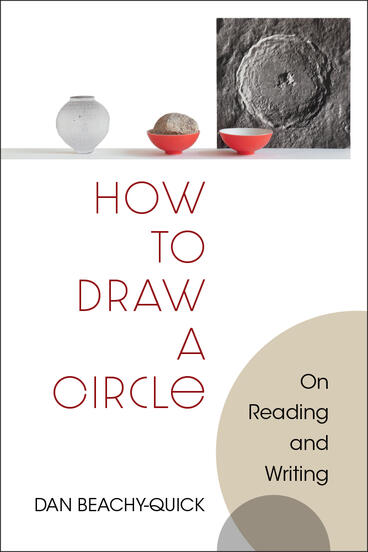How to Draw a Circle
On Reading and Writing
An examination of what binds poetic endeavor into a singular, shining whole
Description
What is it to write a poem? What work do words do when placed with care and vision into the intensely charged space of poetic effort? How to Draw a Circle does not seek to answer those questions, but to encounter them as fully and honestly as one can. The thread running through the essays is an ongoing investigation into poetry as an epistemological experiment, one which binds the imagination to the worldly, and trusts that creative endeavor is a form of participation in the ongoing creation of the world. It does so in part by focusing on thinkers, poets, writers, and literary movements where such thinking for a while prevailed, from Socrates to Melville, Mythology to Romanticism. Here the poem is approached as something deeply rooted in human consciousness, done so not to make an atavistic claim about poetry's history, but to show the ways in which oldest tradition gives us ever-new eyes. The hope this book gathers around is that poetry—poetic expression, the wild wonder of working in words—turns us back toward the world in more vibrant, more open, more ethical ways. How to Draw a Circle summons lyric powers—not an argument, but a participation in the ways poetry works in us and on us.
Dan Beachy-Quick is University Distinguished Teaching Scholar at Colorado State University. His books of poetry include, Circle's Apprentice (2011, Winner of the Colorado Book Award in Poetry), gentlessness (2015), Variations on Dawn and Dusk (2019, long-listed for the National Book Award in Poetry) and Arrows (2020). In 2016 he was named a Guggenheim Fellow in Poetry.
Reviews
“In this thrilling book, Beachy-Quick looks to the tangible, crafted work, to reveal our relationship with the intangible. Drawing a line from here to the eternal, he guides us through writers as varied as Anne Carson, Susan Howe, and Henry Thoreau, back to the very foundations of humanity and poetry. Beachy-Quick is our great poet-archaeologist.”
- Martin Corless-Smith, Author of The Fool & The Bee and The Poet’s Tomb
“These essays, by one of our most revelatory poets, take ‘the meaning of poeisis (to make) as seriously as possible,’ intimately conversant with both the impossibility and radical possibility of the poet’s position: ‘one of maker and made at once.’ This is the circle Dan Beachy-Quick so generously invites us into, the poetic geometry we can enter from any point, finding there the self’s disorienting orientation. Reader, I urge you to linger here, bathed in the illuminating light of poetry’s deepest thinking.”
- Eleni Sikelianos, Author of Your Kingdom
“One of our keenest and most soulfully lyrical poets and thinkers about poetry, Dan Beachy-Quick writes poetics with passion and urgency drawn from the core of his being. In moving and marvelously lyrical essays, Beachy-Quick enacts that audacity through Emersonian leaps of aphorism and startling association as his polymathic mind moves from Melville and Dickinson to Plato and Heidegger to Peter Gizzi and Susan Howe. 'I’m dizzy and lost in wonder,' he writes. And so, as we read these brilliant meditations, are we.”
- Bruce Beasley, Author of Prayershreds

